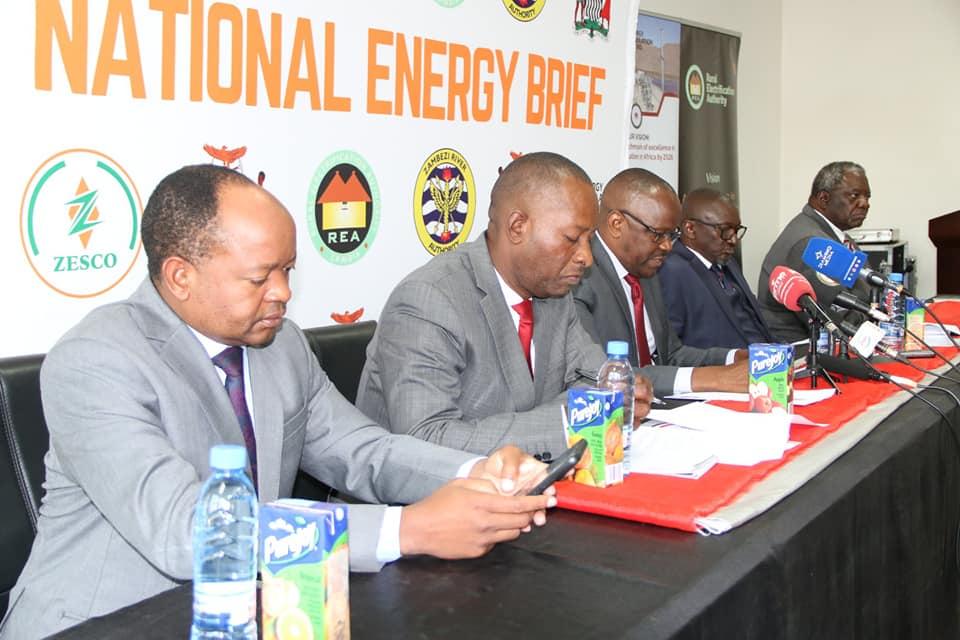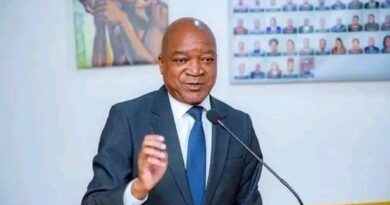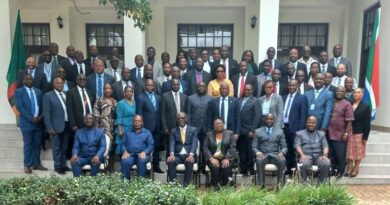Govt Announces Progress in Mitigating Power Deficit
Zambia’s Minister of Energy, Mr. Makozo Chikote, along with Minister of Information and Media, Hon. Cornelius Mweetwa, has provided an update on the government’s efforts to tackle the country’s ongoing power deficit.
The current installed national power generation capacity stands at 3,777 Megawatts, while the national peak demand has reached 2,400 Megawatts. However, with available power generation at just 1,040 Megawatts, Zambia faces a significant power deficit of 1,360 Megawatts.
To mitigate this shortfall, Energy Minister said that ZESCO Limited and other traders are importing 410 Megawatts of power from regional sources, though this still leaves a net deficit of 950 Megawatts. The situation has resulted in continued power rationing nationwide.
Additionally, he said that Maamba Collieries Limited will undergo mandatory maintenance from the end of August through September, exacerbating the deficit by an additional 135 Megawatts due to the temporary removal of two units from the grid.
Addressing these challenges, Minister Chikote said that the government has implemented several measures. ZESCO Limited is negotiating to procure 218 Megawatts of power from Eskom in South Africa and the Zimbabwe Power Company (ZPC), with delivery expected in August 2024.
Moreover, the procurement of 90 Megawatts of diesel generators is in advanced stages, with the first 12 Megawatts expected to be operational within August. These generators will be strategically installed in critical locations such as hospitals and schools.
The government is also accelerating private investment in new generation capacity. The Financial Closure of the GET FiT 120 Megawatts Solar Projects, funded by KFW, has been achieved, paving the way for project development to start between now and mid-next year.
In addition, new tax exemptions for solar equipment and plans to introduce tax-free imports of Liquefied Petroleum Gas (LPG) and geothermal equipment aim to diversify Zambia’s energy mix and promote sustainable energy solutions, said Minister Chikote.
The Presidential Solar Initiative, launching in August, will see government offices installing solar secondary power feeds, with a call extended to private sector entities and households to transition to solar energy.
Load management schedules will continue through August, and efforts are underway to minimize the impact of the expected increase in power deficit due to the depletion of Kariba’s water allocation, Minister Chikote further noted.
Minister Mweetwa urged the private sector to seize opportunities in mini power grids, with 120 applicants identified for this initiative. The government also appealed to media houses to support this transition by crafting messages that promote the shift from hydroelectric power to solar energy.



